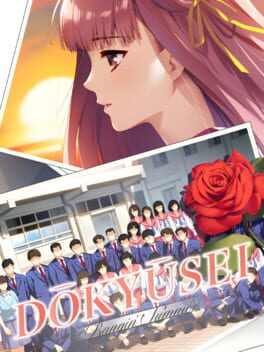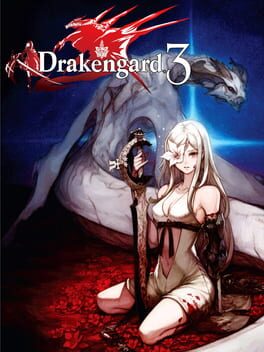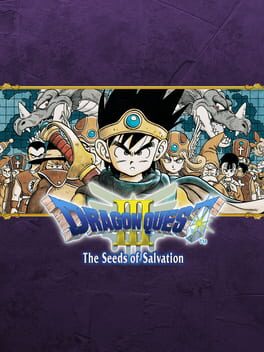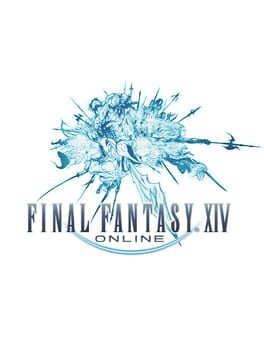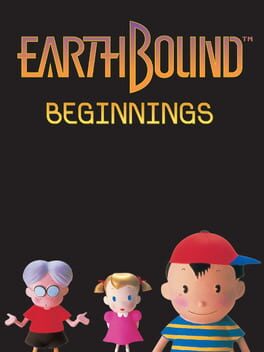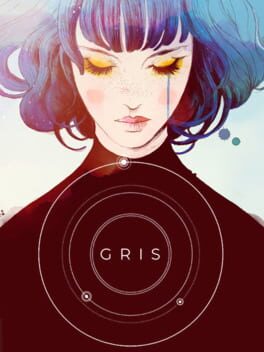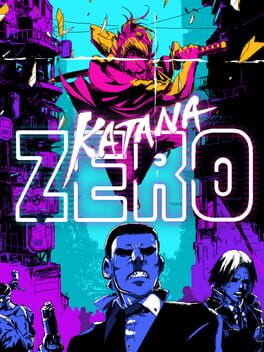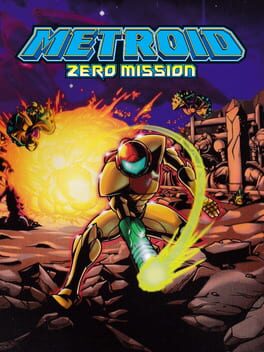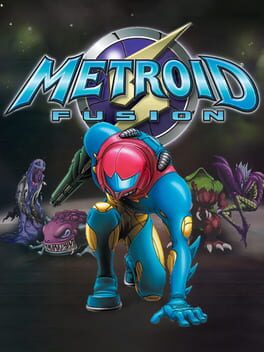9 reviews liked by Sibi
Still holds up.
Takurou is the funniest dude, highly recommend inspecting everything early on for his descriptions/random bullshit he does.
There being actual adult women with adult problems, completely unrestrained from typical modern-day eroge, is refreshing and can't be understated.
QOL improvements are also appreciated, the original seems like an absolute nightmare to work through without a walkthrough. You can still play in classic mode, though.
Also just cool to see how this would influence stuff like To Heart and ONE, with both of them adding fantasty/scifi elements on top.
Edit: YOU CAN CUCK YOUR FRIEND/BE CUCKED DEPENDING ON YOUR CHOICES. KINO.
EDIT: DO NOT USE THE SCENARIO JUMP, YOU WILL MISS A LOT OF SMALL MOMENTS THAT ADD TO THE CHARACTERS
Takurou is the funniest dude, highly recommend inspecting everything early on for his descriptions/random bullshit he does.
There being actual adult women with adult problems, completely unrestrained from typical modern-day eroge, is refreshing and can't be understated.
QOL improvements are also appreciated, the original seems like an absolute nightmare to work through without a walkthrough. You can still play in classic mode, though.
Also just cool to see how this would influence stuff like To Heart and ONE, with both of them adding fantasty/scifi elements on top.
Edit: YOU CAN CUCK YOUR FRIEND/BE CUCKED DEPENDING ON YOUR CHOICES. KINO.
EDIT: DO NOT USE THE SCENARIO JUMP, YOU WILL MISS A LOT OF SMALL MOMENTS THAT ADD TO THE CHARACTERS
Drakengard 3
2013
I really cannot think of a better thematic follow up to both Drakengard 1 and Nier than Drakengard 3, the more I think about it the more I find to love, just absolutely mesmerizing.
DoD1 criticizes the completionism mindset and inherent violence of the "video game logic" and how that equally applies to humanity both as individuals and as separate nations.
Our drive to always be one step ahead, devolves into complete nonsense and insanity, simply gaining strength for its own sake.
Nier equally so but focuses more on the reason, our beliefs, our loved ones, what is familiar to us.
Because what we do for those we love is right and prolongs what we perceive as happiness.
I feel like DoD3 adds an entire layer to this by throwing you in the most insane world from the get go and slowly leading you to the realization that our same "completionism" mindset is what drives us to bettering the world even at the cost of ourselves, it's a weirdly nihilistic yet optimistic views of what we are as humans.. deeply gruesome but equally as sympathetic.
The games having so little insensitive to make you play them plays a big role to show that everyone has it to see it through and reach their potential, something you see a little bit of in every intoners including Zero for better or for worse.
I never thought feeling like a numb killing machine could make me feel so emotional..
It feels like a real destination of the thought process that carried this whole franchise to what it is today.
NieR Automata drops this commentary on completionism but keeps the human drive aspects in its own way that I find just as lovely and respectable, it also has the benefit of being more palatable for a mainstream audience which gave it the clout it has today.
I have to respect Taro for finding new ways to continue his signature gimmicks without repeating endlessly what was already said, not creating only for the sake of creating.
DoD1 criticizes the completionism mindset and inherent violence of the "video game logic" and how that equally applies to humanity both as individuals and as separate nations.
Our drive to always be one step ahead, devolves into complete nonsense and insanity, simply gaining strength for its own sake.
Nier equally so but focuses more on the reason, our beliefs, our loved ones, what is familiar to us.
Because what we do for those we love is right and prolongs what we perceive as happiness.
I feel like DoD3 adds an entire layer to this by throwing you in the most insane world from the get go and slowly leading you to the realization that our same "completionism" mindset is what drives us to bettering the world even at the cost of ourselves, it's a weirdly nihilistic yet optimistic views of what we are as humans.. deeply gruesome but equally as sympathetic.
The games having so little insensitive to make you play them plays a big role to show that everyone has it to see it through and reach their potential, something you see a little bit of in every intoners including Zero for better or for worse.
I never thought feeling like a numb killing machine could make me feel so emotional..
It feels like a real destination of the thought process that carried this whole franchise to what it is today.
NieR Automata drops this commentary on completionism but keeps the human drive aspects in its own way that I find just as lovely and respectable, it also has the benefit of being more palatable for a mainstream audience which gave it the clout it has today.
I have to respect Taro for finding new ways to continue his signature gimmicks without repeating endlessly what was already said, not creating only for the sake of creating.
This review contains spoilers
While I enjoy the first two Dragon Quest games for different reasons and for what each of them was trying to set out to do, the third game is really where the series starts to hit its stride and find its footing. It’s hardly a spoiler at this point, but seeing as the third game is a prequel telling the story of how the legendary hero Erdrick/Loto earned his stripes (hence the subtitle in the original Japanese: “Soshite densetsu e…” translated to “And into the legend…”), it’s only fitting that this game expanded, iterated on, and refined so many aspects of the first two games while also adding so many new features that it feels like a legendary adventure, more so than even its predecessors. I could go on about so many different aspects of the game’s design, such as the class and multiclass system, or how the game is a simple yet brilliant rendition of the Hero’s Journey, but the primary standout aspects of Dragon Quest III to me are its worldbuilding and its theme of family.
Dragon Quest games have always had rich worlds with charming characters for you to interact with (more or less depending on the game). While I and II were foundational and had good worldbuilding for their time, III really took things to the next level. If you look at the world map, it is made to resemble our own planet Earth, with similar continents. The only real outlier is the starting continent containing Aliahan, where Erdrick hails from. Following that premise, the towns on these continents resemble the different peoples and cultures of our own Earth, to some extent or another, giving the towns a rich and charming personality that other jrpgs of the time lacked. The player will travel from town to town and solve small problems in each area in little vignettes that flesh out those small encounters and tie in to the greater whole. Dragon Quest II tried this previously but in my humble opinion, III pulls this off to greater success. Through this structure, the game emphasizes the hero as a worldly person who connects people through his/her heroism, making this game being the origin story of Erdrick all the more fitting. Honestly, my only complaint is somewhat minor in that it is a retroactive one. I played XI to completion prior to finishing III, so unfortunately my opinion was somewhat colored by that game, which happened to go for a similarly varied and diverse world. Besides differences in architecture, one feature XI had was accented dialogue that would vary based on region. Architectural differences based on the town and region in III did not seem as stark as in XI, but I would probably chalk that up to hardware. I really think the devs did as best they could to diversify the world, and it shows. The dialogue in III had somewhat of a variance but not much in the way of accents, which was kind of disappointing. I was playing the fan-translated Super Famicom remake though, and if I remember correctly the mobile and Switch versions have different dialogue with similar accent variety as in XI. Again, a minor thought I had, but one I thought worth mentioning. For its time, III’s worldbuilding was ambitious, and it is definitely one of its standout aspects.
I have often discussed the Dragon Quest games at length with my best friend and we have come to the conclusion that one of the central themes present in most if not all of the mainline Dragon Quest games is family. This theme has been present ever since the original Dragon Quest and is naturally a main element of the Erdrick Trilogy specifically. In I, you play as the descendant of the hero Erdrick who must fulfill the destiny of his bloodline by vanquishing the Dragonlord, and in II you play as the descendants of the hero of I (and by extension, Erdrick) and must fulfill the destiny of your bloodline once more. II expanded on this idea with the Prince of Cannock and Princess of Moonbrooke as party members, emphasizing the relationship and shared destiny of the three cousins. III expands on this theme in the best way possible at this juncture: by personalizing it. You play as the soon to be legendary hero Erdrick, but the theme of family is not emphasized in your bloodline or your descendants, but in both the family by bond in the party you create at Ruida's Tavern and by blood in the personal relationship between you and your father, Ortega. It is often a wish of a parent to see their child succeed in life where they have failed, or otherwise just make it further than they did, and this is conveyed beautifully and touchingly in III. Ortega leaves Aliahan to defeat Baramos before the hero is even born, and throughout the adventure Erdrick is following their father’s footsteps on a journey to unite and save the world, and ultimately succeed where he failed.
My father passed away in August of 2021, after a long bout with various crippling health conditions. Despite having a complicated relationship with him, I loved him, and it was a difficult loss to deal with. Yet, through all the sorrow and pain, Dragon Quest III managed to be one of the most cathartic experiences I have had in dealing with the loss of my father, and it is because of this theme of family. Throughout the various towns, the player will encounter townsfolk who speak of Ortega’s deeds or even of meeting him before. One town is filled with people who adore Ortega, and will comment frequently on how the hero looks just like him. This reminded me of how everyone would always say I looked like my father more than my mother. It's a common and simple fact of life but nevertheless, it managed to elicit tears. Later on, you catch up with your father, but he dies before your eyes while battling the King Hydra, failing in his quest. Defeating the following bosses and then the end boss Zoma felt cathartic, not just in the sense that in-universe Erdrick was defeating the being who killed Ortega, but almost as if I was avenging the death of my own father, vowing with that action to forge on my path in life and learn the lessons he taught me. It was unexpected but incredibly moving.
Dragon Quest III is a simple, straightforward JRPG. I would almost call it the quintessential JRPG, but that title probably goes to Chrono Trigger. While innovating for its series and for JRPGs in general, its gameplay, story, and characters may be considered barebones and trite by some. Yet, this game’s charm, emotion, and vibrant world cement it as a forever masterpiece of the genre in my eyes, and a must play for any fans of JRPGs.
Dragon Quest games have always had rich worlds with charming characters for you to interact with (more or less depending on the game). While I and II were foundational and had good worldbuilding for their time, III really took things to the next level. If you look at the world map, it is made to resemble our own planet Earth, with similar continents. The only real outlier is the starting continent containing Aliahan, where Erdrick hails from. Following that premise, the towns on these continents resemble the different peoples and cultures of our own Earth, to some extent or another, giving the towns a rich and charming personality that other jrpgs of the time lacked. The player will travel from town to town and solve small problems in each area in little vignettes that flesh out those small encounters and tie in to the greater whole. Dragon Quest II tried this previously but in my humble opinion, III pulls this off to greater success. Through this structure, the game emphasizes the hero as a worldly person who connects people through his/her heroism, making this game being the origin story of Erdrick all the more fitting. Honestly, my only complaint is somewhat minor in that it is a retroactive one. I played XI to completion prior to finishing III, so unfortunately my opinion was somewhat colored by that game, which happened to go for a similarly varied and diverse world. Besides differences in architecture, one feature XI had was accented dialogue that would vary based on region. Architectural differences based on the town and region in III did not seem as stark as in XI, but I would probably chalk that up to hardware. I really think the devs did as best they could to diversify the world, and it shows. The dialogue in III had somewhat of a variance but not much in the way of accents, which was kind of disappointing. I was playing the fan-translated Super Famicom remake though, and if I remember correctly the mobile and Switch versions have different dialogue with similar accent variety as in XI. Again, a minor thought I had, but one I thought worth mentioning. For its time, III’s worldbuilding was ambitious, and it is definitely one of its standout aspects.
I have often discussed the Dragon Quest games at length with my best friend and we have come to the conclusion that one of the central themes present in most if not all of the mainline Dragon Quest games is family. This theme has been present ever since the original Dragon Quest and is naturally a main element of the Erdrick Trilogy specifically. In I, you play as the descendant of the hero Erdrick who must fulfill the destiny of his bloodline by vanquishing the Dragonlord, and in II you play as the descendants of the hero of I (and by extension, Erdrick) and must fulfill the destiny of your bloodline once more. II expanded on this idea with the Prince of Cannock and Princess of Moonbrooke as party members, emphasizing the relationship and shared destiny of the three cousins. III expands on this theme in the best way possible at this juncture: by personalizing it. You play as the soon to be legendary hero Erdrick, but the theme of family is not emphasized in your bloodline or your descendants, but in both the family by bond in the party you create at Ruida's Tavern and by blood in the personal relationship between you and your father, Ortega. It is often a wish of a parent to see their child succeed in life where they have failed, or otherwise just make it further than they did, and this is conveyed beautifully and touchingly in III. Ortega leaves Aliahan to defeat Baramos before the hero is even born, and throughout the adventure Erdrick is following their father’s footsteps on a journey to unite and save the world, and ultimately succeed where he failed.
My father passed away in August of 2021, after a long bout with various crippling health conditions. Despite having a complicated relationship with him, I loved him, and it was a difficult loss to deal with. Yet, through all the sorrow and pain, Dragon Quest III managed to be one of the most cathartic experiences I have had in dealing with the loss of my father, and it is because of this theme of family. Throughout the various towns, the player will encounter townsfolk who speak of Ortega’s deeds or even of meeting him before. One town is filled with people who adore Ortega, and will comment frequently on how the hero looks just like him. This reminded me of how everyone would always say I looked like my father more than my mother. It's a common and simple fact of life but nevertheless, it managed to elicit tears. Later on, you catch up with your father, but he dies before your eyes while battling the King Hydra, failing in his quest. Defeating the following bosses and then the end boss Zoma felt cathartic, not just in the sense that in-universe Erdrick was defeating the being who killed Ortega, but almost as if I was avenging the death of my own father, vowing with that action to forge on my path in life and learn the lessons he taught me. It was unexpected but incredibly moving.
Dragon Quest III is a simple, straightforward JRPG. I would almost call it the quintessential JRPG, but that title probably goes to Chrono Trigger. While innovating for its series and for JRPGs in general, its gameplay, story, and characters may be considered barebones and trite by some. Yet, this game’s charm, emotion, and vibrant world cement it as a forever masterpiece of the genre in my eyes, and a must play for any fans of JRPGs.
When I think back on my time with this one - the big takeaway I seem to come to is that I felt it was a story that certainly said a lot, and yet nothing at all!
No worthwhile character shit to really ruminate on or any meaningful revelations to pog over. Just a series of inevitably boring exposition dumps told to you in a funky order that only give the VENEER of making the thing feel more complicated than it really is.
The fun of keeping up with the mysteries and timeline crap kinda burnt out for me as the thing went on and introduced more and more elements I just didn't think to be immediately believable or satisfying with the setup I was given, OR because certain plotlines revealed themselves to be ultimately irrelevant anyway! Leaving me especially numb by endgame when one of the final kid's routes was JUST some last minute justifications I-don't-give-a-shit-about they felt the need to throw in there.
The whole thing doesn't come off too strong a mystery story with how inexplicable those revelations can be, and it ain't too fun a thriller either because haha I don't care about any of these trite stereotype ass characters and their meanderings??? shoutouts to the women and the godawful relationship pairings too LMAO it never ends.
Dooooon't really get the worship with this one, but it looks really pretty I suppose. It's also a satisfying enough RTS thing in a mindless "Peggle" sort of way, I guess. But none of that is gonna be what sticks with you by the time it's all over, I imagine. whaaaaaatever man....... funny yakisoba pan.
No worthwhile character shit to really ruminate on or any meaningful revelations to pog over. Just a series of inevitably boring exposition dumps told to you in a funky order that only give the VENEER of making the thing feel more complicated than it really is.
The fun of keeping up with the mysteries and timeline crap kinda burnt out for me as the thing went on and introduced more and more elements I just didn't think to be immediately believable or satisfying with the setup I was given, OR because certain plotlines revealed themselves to be ultimately irrelevant anyway! Leaving me especially numb by endgame when one of the final kid's routes was JUST some last minute justifications I-don't-give-a-shit-about they felt the need to throw in there.
The whole thing doesn't come off too strong a mystery story with how inexplicable those revelations can be, and it ain't too fun a thriller either because haha I don't care about any of these trite stereotype ass characters and their meanderings??? shoutouts to the women and the godawful relationship pairings too LMAO it never ends.
Dooooon't really get the worship with this one, but it looks really pretty I suppose. It's also a satisfying enough RTS thing in a mindless "Peggle" sort of way, I guess. But none of that is gonna be what sticks with you by the time it's all over, I imagine. whaaaaaatever man....... funny yakisoba pan.
Playing this game again when I was a game design student and learning how to program made me realize how artful every small aspect of this game is; its journey, its dialogue, the battles, the world design, and graphics, everything just clicks in favor of a singular vision and message.
While I couldn't appreciate it until years after I loved its sequel, the prequel still managed to be a formative experience for me.
I love that magicant becomes a place you visit multiple times as a home world in the pink clouds of fantasy creatures, cloud swimming cats, and just strange people, living beneath a sad queen. The armor shops in this place have multiple tiers and variations of equipment that can be useful all game, and the tons of stuff in the treasury in the queens castle combined with the limited inventory makes it so you have incentive to come back and return to this place, to relax from the real world of physical objects and people that might want to harm you while you search for the eight things that will sing you a portion of a melody to save the world.
I won't forget the dance sequence, the singing cactus, driving a tank, taking the train across the world and through the most dangerous tunnel, running from giant creatures and machines in the endgame, teaming up with a gangster that became bedridden from injury he took by helping me, having to deal with asthma, catching a cold from an npc, the list goes on.
This game might live in the shadow of its superior sequel, but it's a totally different and fantastic experience on its own, despite sharing a lot of similar flavors and ideas.
Also, after playing other rpg's from this era, the crit SMAAASH system in this game adds so much needed unpredictability to battles that it keeps them from getting stale. You can always crit an enemy for a ton of damage, or they can crit you and you have to make do with the turn-around. Having to deal with unexpected situations are what rpg's are all about.
While I couldn't appreciate it until years after I loved its sequel, the prequel still managed to be a formative experience for me.
I love that magicant becomes a place you visit multiple times as a home world in the pink clouds of fantasy creatures, cloud swimming cats, and just strange people, living beneath a sad queen. The armor shops in this place have multiple tiers and variations of equipment that can be useful all game, and the tons of stuff in the treasury in the queens castle combined with the limited inventory makes it so you have incentive to come back and return to this place, to relax from the real world of physical objects and people that might want to harm you while you search for the eight things that will sing you a portion of a melody to save the world.
I won't forget the dance sequence, the singing cactus, driving a tank, taking the train across the world and through the most dangerous tunnel, running from giant creatures and machines in the endgame, teaming up with a gangster that became bedridden from injury he took by helping me, having to deal with asthma, catching a cold from an npc, the list goes on.
This game might live in the shadow of its superior sequel, but it's a totally different and fantastic experience on its own, despite sharing a lot of similar flavors and ideas.
Also, after playing other rpg's from this era, the crit SMAAASH system in this game adds so much needed unpredictability to battles that it keeps them from getting stale. You can always crit an enemy for a ton of damage, or they can crit you and you have to make do with the turn-around. Having to deal with unexpected situations are what rpg's are all about.

